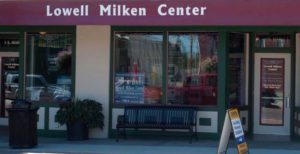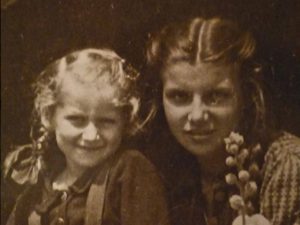
The Lowell Milken Center for Unsung Heroes in tiny Fort Scott, Kansas honors unsung heroes, who can serve as role models for everyone. I recently discovered the center while researching Irena Sendler, a Polish woman who rescued 2,500 children from the Warsaw Ghetto. In many ways, the center is a direct result of the school history project that became a high school play inspired by the life of Irena Sendler. In 2013, the Center opened a branch in Kedzierzyn-Kozle, Poland, the home city of Irena Sendler, to spread its teaching to Europe. Count me a fan.
The Center was Founded by the Key Trio Behind the Irena Sendler Project
The Center was founded in 2007 as a direct collaboration of three people dedicated to education: Lowell Milken of the Milken Family Foundation, who originally funded the Irena Sendler Project; Norm Conrad, the high school history teacher who inspired his history students to seek out Irena Sendler, and Megan Felt, the high school freshman who took the lead on the Irena Sendler project. (See earlier post on Irena Sendler.)
Definition of an Unsung Hero
The Center defines an unsung hero as “one who created positive change in history by improving the lives of others, and has yet to be recognized for his or her actions.” Featured projects on its website touch on civil rights, HIV/AIDS, Japanese internment camps, the Revolutionary War, innovative medical projects that have saved countless lives, and environmental protection, to name a few. The heart of the Center is based on the belief that in a time when many young people lack positive role models, the Center strives to champion people who do extraordinary things regardless of popularity or convenience—and simply because it was the right thing to do.
In 2013, the Lowell Milken Center for Unsung Heroes opened a European branch in Kedzierzyn-Kozle, Poland

Why Poland? Kedzierzyn-Kozle was home to Irena Sendler. The Center partners with the Museum of the History of Polish Jews in Warsaw, the German Foundation for Remembrance, Responsibility, and Future, and other educational organizations in Poland to promote intercultural values. Consider the award-winning project that honored Maria Meva Mikusz, a 15-year-old Polish girl who climbed through a small hole in the Czortkow Ghetto during WWII to rescue 2-year-old Inka and protect her throughout the war until reuniting her with her mother in 1945. The Center has focused on several interesting outreach projects including taking Irena Sendler’s story to a women’s prison.
So far the Lowell Milken Center for Unsung Heroes has inspired over 1,000,000 students and over 7,320 schools.
The Center functions as an innovative think tank for education. Their website states visitors have come from all fifty states and seventy countries. I located banners for purchase for the classroom, online lesson plans that satisfy character education and meet other state and national standards and more. I have not spoken with them personally, but I share their passion for promoting untold stories of good people.
Additional Information
Lowell Milken Center for Unsung Heroes, Lowell Milken Center Europe, Irena Sendler,
Facebook: Lowell Milken Center, Lowell Milken Center Europe

2 Comments. Leave new
Katrina
Thank you for the clarification of the term, unsung heroines. Irena Sandler and Maria Meva Mikusz are models for all of us, Christians and non Christians that believe in sanctity of life among all people. Irena Sandler rescued 2,500 children from the Warsaw Ghetto and Maria Meva Mikusz rescued 2 – years old Inka from the Kedzierzyn – Kozle Ghetto in Poland. They did that not to gain recognition, earn a reward or for glory, instead they acted to prevent a tragedy because it was the right thing to do at the time, to protect innocent lives.
Lucyna Spychalski
Thank you for an excellent piece on Unsung Heroes. So many are a force for good while others thwart them at every turn. Teach tolerance wherever you go.